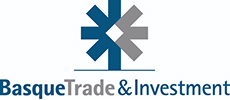Argentina and Uruguay
Argentina remains the third largest economy of Latin America despite its economic turmoil of recent years, while Uruguay remains stable that makes it an attractive gateway to Mercosur.
Markets with great potential in energy, industry and technology
Argentina is the third largest economy of Latin America, with a GDP of approximately USD 640 billion. The country has abundant natural resources, is one of the main agriculture producers, has important lithium and gas reserves, and has huge potential in renewable energy.
Uruguay stands out in Latin America for its stability and for having the largest middle-class of the Americas and the Caribbean, representing over 60% of its population, as well as for its high per capita income and its low levels of inequality and poverty.
Roberto Caride
Business Manager
BASQUE COUNTRY DELEGATION IN ARGENTINA – MERCOSUR
* Office hours:
Monday to Friday: 8.00 a.m. to 5.00 p.m.
